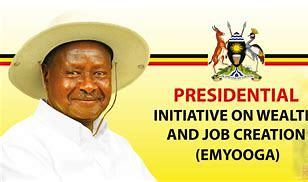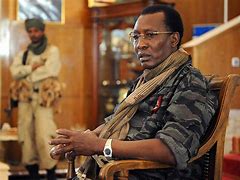
I have been reading about the Pragmatic Theory of Truth advanced by the American William James (1842-1910). I sense that it has a lot of relevance to Ugandans and all humanity. I want to share with you what I have learned and immediately apply it to the Uganda situation.
But first let me introduce you to the word pragmatism. Of course you have heard of it in connection with leadership. You have heard some people say such and such a person was or is a pragmatic leader.
The word pragmatism was derived by another American, Charles Saunders Peirce (1838-1914), from the Greek word “pragma” (meaning “act” or “deed”). He wanted to emphasise that words derive their meaning from actions of some sort. He, therefore, wanted to emphasise that our ideas are clear and distinct only when we are able to translate them into some mode of operation. When we can do that then we can call ourselves pragmatic.
Every worthwhile idea is a one, which is actionable or applicable to life. It must work to improve life to another level. Now let me go to what I learnt about the Pragmatic Theory of Truth.
There are many who, like the great thinkers in older times, believe that truth is an internal property or quality of an idea. So, when they hold their ideas they believe truth is found in them and nowhere else. They do not expect or welcome contradiction. They can even take offense if one contradicts them. Indeed many rulers and academics are of this type.
The assumption is that the ideas they hold copy reality out there accurately so that reality can be understood via only their ideas. They sometimes call themselves men or women of ideas and look down upon anyone else whom they see as useless; without ideas.
But this arrogant stance, which William James characterised as “copy-view of truth” gives the false understanding that truth has an inert static relation to an idea.
William James instead makes the revolutionary statement that “Truth comes to an idea”; not the other way round. What he is saying is that truth must be the cash value of an idea; that an idea is true if it can make concrete difference in one’s life or people’s lives. He is implying that ideas become true or are made true, by events in our environment. So truth happens to ideas.
Take, for example, President Museveni’s ideas of Bona Bagagawale, Zero Tolerance to Corruption, Operation Wealth Creation, oil palm growing in Kalangala, hydropower plant at Bujagali Falls, oil mining in Bunyoro, sugarcane growing in Amuru, Universal Primary Education, Universal Secondary Education, military occupation of Lake Victoria, et cetera. They were all impositions that were never negotiated or arose from our experience.
What quantitative and qualitative difference have they made in the lives of Ugandans? What value have they added to the lives of Ugandans? If nothing or little, then the ideas are not true and should be abandoned. They promise what they cannot ensure. Dhigumaaza, a Musoga would say of the ideas, because they give false hopes. They are not transformational but deformational or retrogressive, in the long term. They make the people have illusionary hope that the centre will change their circumstances.
According to William James “ideas become true insofar as they help us to make successful connections among various parts of our experience. Truth is, therefore, part of the process of experience, of living. As part of a process, truth is made by the process of successful experience: successful experience is the verification process”.
So in the context of the above ideas mentioned can we confidently say our experience with them has verified them as true?
The evidence on the ground suggests most Ugandans have reaped far more pain from the ideas, individually and collectively, than benefit. If there is any benefit earned it is to a few individuals, mostly connected to power. There are no concrete actions to reduce the pain and enhance benefit for the majority. It seems the majority are set to suffer the pain perennially as a few benefit from the ideas.
Ideas to which no truth has come from experience should normally be abandoned. If they are not abandoned then there must be personal or group interests involved. Outwardly they believe the ideas will work; inwardly they know the ideas will not work, but enforce them for personal or group interests. Beliefs that are untrue can only work destructively, says William James.
William James says his Pragmatic Theory of Truth pushes us to seek the truth as part of our general obligation to do what pays; in the Uganda case, in terms of development, transformation and progress for all.
Apparently William James’ way to the truth provides a means to solving disputes. Uganda’s environment is full of unresolved questions and disputes, but we go on as if nothing is wrong. We have refugee, Indian, land, citizenship, nationality and other questions. We have intellectual crises. We have governance crises. We have legal crises. We have environmental crises. All of these demand resolution; which makes studies in dispute resolution and management necessary and critical.
One roadblock to resolution of the myriad of questions, crises or disputes in our environment is that there is no national consensus that they exist. Another roadblock to resolution of questions, crises and disputes is that, frequently, power has depicted itself as the only one, which names questions, crises and disputes, and decides how to approach any of them.
Clearly, in the view of power its ideas and choices are always true, and only itself must chart the pathway to the truth. This habit of mind is in the long run destructive.
As experience has verified every time a crisis ignites peaceful social movements or demonstrations, the easy response by power has been military. The negotiated approach is frequently squeezed out of solutions.
Unfortunately, this is turning Uganda into a potentially and actually security and peace poor or deficient country well into the future. One consequence, yet to rear its head, will be destruction of what we now call islands of development, transformation and progress.
- A Tell report / By Prof Oweyegha-Afunaduula, a former professor in the Department of Environmental Sciences of the Makerere University, Uganda











